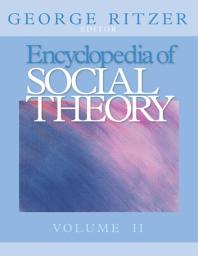



The Library of Congress (LC) classification for Sociology begins with the letter H. LC classification is the system the Blough-Weis library uses to organize books.
You may want to look on the shelf where books on your subject are located in order to see what is available. The general categories for sociology are listed below:
| Social Sciences (General) | H1-99 |
| Statistics | HA1-4737 |
| Industries. Land use. Labor | HD28-9999 |
| Transportation and communications | HE1-9990 |
| Sociology | HM1-1281 |
| History of sociology. History of sociological theory | HM435-477 |
| Schools of sociology. Schools of social thought | HM461-473 |
| Theory. Method. Relations to other subjects | HM481-554 |
| Culture | HM621-656 |
| Social control | HM661-696 |
| Social systems | HM701 |
| Social structure | HM706 |
| Groups and organizations | HM711-806 |
| Deviant behavior. Social deviance | HM811-821 |
| Social institutions | HM826 |
| Social change | HM831-901 |
| Social psychology | HM1001-1281 |
| Social perception. Social cognition Including perception of the self and others, prejudices, stereotype |
HM1041-1101 |
| Interpersonal relations. Social behavior | HM1106-1171 |
| Social influence. Social pressure | HM1176-1281 |
| Social history and conditions. Social problems. Social reform | HN1-995 |
| The Family. Marriage. Women | HQ1-2044 |
| Societies: secret, benevolent, etc. | HS1-3371 |
| Communities. Classes. Races | HT51-1595 |
| Social pathology. Social and public welfare. Criminology | HV1-9960 |
| Socialism. Communism. Anarchism | HX1-970.7 |
*Please note: these categories, like any system for organizing knowledge, unfortunately, embody the biases of those who created them. LCC was developed in 1the early 1900s and changes to its subject headings happen slowly and gradually over time.
Use the Argo search box above to find books on your topic in the library.
Below are some encyclopedias and other general books on sociology available online or at the library to get you started.
 Concise Encyclopedia of Comparative Sociology
by
The Concise Encyclopedia of Comparative Sociology presents the current state of knowledge in comparative sociology for students, scholars, and the educated lay public. The major aim of comparative sociological research is to identify similarities and differences among societies, studying variation across both geographical regions and historical periods. This volume is divided into six broad categories: Theoretical and Methodological Issues in Comparing Societies, Comparative Historical Sociology, Comparing Institutions and Social Structures, Comparing Social Processes, Comparing Nation States and World Regions, and Biographies of Exemplary Comparative Sociologists. Nearly 60 essays written by distinguished experts in their fields focus on the first five categories, while the biographical section contains forty biographies of both classical and contemporary sociologists who have made major contributions to comparative sociology. Contributors include: David Baker, Wenda Bauchspies, Hans-Peter Blossfield, Harriet Bradley, Sandra Buchholz, Miguel Centeno, Karen Cerulo, Brett Clark, Amy Corming, William D'Antonio, Mario Diani, Mattei Dogan, Riley Dunlap, Shmuel Eisenstadt, Mike Featherstone, Claude Fischer, Joshua Fishman, William Gamson, Julian Go, Jack Goldstone, Ralph Grillo, John Hall, Steve Hall, Robert Heiner, Joseph Hermanowicz, Margret Hornsteiner, David Johnson, Andrew Jorgenson, Jack Levy, Robert Marsh, Bill McCarthy, David Johnson, James Midgley, Peter Mohler, Linda Molm, Benjamin Moodie, Victor Nee, Anthony Orum, William Outhwaite, Anthony Pogorelc, Harland Prechel, Danielle Resnick, Glenn Robinson, Luis Roniger, Thomas Saalfeld, Stephen Sanderson, Michelle Sandhoff, Masamichi Sasaki, Saskia Sassen, Andrew Savchenko, Harald Schoen, Howard Schuman, David Segal, Michael Siemon, Tom Smith, Joonmo Son, Hendrik Spruyt, Robert Stebbins, George Steinmetz, Piotr Sztompka, Henry Teune, Arland Thornton, Kathleen Tierney, Jonathan Turner, Nicholas van de Walle, Henk Vinken, Veljko Vujačic, Erich Weede, Michel Wieviorka, Ekkart Zimmermann.
Concise Encyclopedia of Comparative Sociology
by
The Concise Encyclopedia of Comparative Sociology presents the current state of knowledge in comparative sociology for students, scholars, and the educated lay public. The major aim of comparative sociological research is to identify similarities and differences among societies, studying variation across both geographical regions and historical periods. This volume is divided into six broad categories: Theoretical and Methodological Issues in Comparing Societies, Comparative Historical Sociology, Comparing Institutions and Social Structures, Comparing Social Processes, Comparing Nation States and World Regions, and Biographies of Exemplary Comparative Sociologists. Nearly 60 essays written by distinguished experts in their fields focus on the first five categories, while the biographical section contains forty biographies of both classical and contemporary sociologists who have made major contributions to comparative sociology. Contributors include: David Baker, Wenda Bauchspies, Hans-Peter Blossfield, Harriet Bradley, Sandra Buchholz, Miguel Centeno, Karen Cerulo, Brett Clark, Amy Corming, William D'Antonio, Mario Diani, Mattei Dogan, Riley Dunlap, Shmuel Eisenstadt, Mike Featherstone, Claude Fischer, Joshua Fishman, William Gamson, Julian Go, Jack Goldstone, Ralph Grillo, John Hall, Steve Hall, Robert Heiner, Joseph Hermanowicz, Margret Hornsteiner, David Johnson, Andrew Jorgenson, Jack Levy, Robert Marsh, Bill McCarthy, David Johnson, James Midgley, Peter Mohler, Linda Molm, Benjamin Moodie, Victor Nee, Anthony Orum, William Outhwaite, Anthony Pogorelc, Harland Prechel, Danielle Resnick, Glenn Robinson, Luis Roniger, Thomas Saalfeld, Stephen Sanderson, Michelle Sandhoff, Masamichi Sasaki, Saskia Sassen, Andrew Savchenko, Harald Schoen, Howard Schuman, David Segal, Michael Siemon, Tom Smith, Joonmo Son, Hendrik Spruyt, Robert Stebbins, George Steinmetz, Piotr Sztompka, Henry Teune, Arland Thornton, Kathleen Tierney, Jonathan Turner, Nicholas van de Walle, Henk Vinken, Veljko Vujačic, Erich Weede, Michel Wieviorka, Ekkart Zimmermann.
 Encyclopedia of Social Theory
by
The Encyclopedia of Social Theory is an indispensable reference source for anyone interested in the roots of contemporary social theory. It examines the global landscape of all the key theories and the theorists behind them, presenting them in the context needed to understand their strengths and weaknesses. Theories covered include * Critical Theory * Enlightenment * Ethnomethodology * Exchange Theory * Feminism * Marxist Theory * Multiculturalism * Phenomenology * Postmodernism * Rational Choice * Structural Fundamentalism Led by internationally renowned scholar George Ritzer, the Encyclopedia of Social Theory draws together a team of more than 200 international scholars covering the developments, achievements, and prospects of social theory from its inception in the 18th century to the present. Understanding that social theory can both explain and alter the social world, this two-volume set serves as not only a foundation for learning, but also an inspiration for creative and reflexive engagement with the rich range of ideas it contains. Key Themes* American Social Theory * British Social Theory * Comparative and Historical Theory * Cultural Theory * Economic Sociology * Feminist Theory * French Social Theory * German Social Theory * Macrosociological Theories * Marxist and Neo-Marxist Approaches * Method and Metatheory * Network and Exchange Theories * Other/Multiple National Traditions * Politics and Government * Postmodern Theory * Psychoanalytic Theory * Schools and Theoretical Approaches * Symbolic Interaction and Microsociology * Theorists * Topics and Concepts in Social Theory Key Features * More than 300 entries from fourteen countries * Master Bibliography * Reader′s Guide * Extensive biographical coverage of major theorists * Extensive cross-referencing
Encyclopedia of Social Theory
by
The Encyclopedia of Social Theory is an indispensable reference source for anyone interested in the roots of contemporary social theory. It examines the global landscape of all the key theories and the theorists behind them, presenting them in the context needed to understand their strengths and weaknesses. Theories covered include * Critical Theory * Enlightenment * Ethnomethodology * Exchange Theory * Feminism * Marxist Theory * Multiculturalism * Phenomenology * Postmodernism * Rational Choice * Structural Fundamentalism Led by internationally renowned scholar George Ritzer, the Encyclopedia of Social Theory draws together a team of more than 200 international scholars covering the developments, achievements, and prospects of social theory from its inception in the 18th century to the present. Understanding that social theory can both explain and alter the social world, this two-volume set serves as not only a foundation for learning, but also an inspiration for creative and reflexive engagement with the rich range of ideas it contains. Key Themes* American Social Theory * British Social Theory * Comparative and Historical Theory * Cultural Theory * Economic Sociology * Feminist Theory * French Social Theory * German Social Theory * Macrosociological Theories * Marxist and Neo-Marxist Approaches * Method and Metatheory * Network and Exchange Theories * Other/Multiple National Traditions * Politics and Government * Postmodern Theory * Psychoanalytic Theory * Schools and Theoretical Approaches * Symbolic Interaction and Microsociology * Theorists * Topics and Concepts in Social Theory Key Features * More than 300 entries from fourteen countries * Master Bibliography * Reader′s Guide * Extensive biographical coverage of major theorists * Extensive cross-referencing
 Facing an Unequal World: challenges for global sociology
by
"Raquel Sosa Elízaga has assembled an incredibly complete set of analyses of inequality written by a range of scholars about a wide range of issues. Incomparable essential reading." - Immanuel Wallerstein, Senior Research Scientist, Sociology, Yale University Over recent decades, living conditions in poorer countries have deteriorated, leaving us faced with the present phenomenon of global inequality. Arguably the biggest challenge of the 21st Century is the confrontation and eventual elimination of the processes of structural inequality that affect these millions of human beings today. Facing an Unequal World tackles and critically examines key issues and challenges for global sociology across these interrelated themes: The dimensions of inequality and the configurations of structural inequalities and structures of power Conceptions of justice in different historical and cultural traditions Conflicts on environmental justice and sustainable futures The social injuries of inequality, and overcoming inequalities Written by a selection of international key sociologists and academics, this is a valuable resource for undergraduate and postgraduate students, and researchers in sociology alike.
Facing an Unequal World: challenges for global sociology
by
"Raquel Sosa Elízaga has assembled an incredibly complete set of analyses of inequality written by a range of scholars about a wide range of issues. Incomparable essential reading." - Immanuel Wallerstein, Senior Research Scientist, Sociology, Yale University Over recent decades, living conditions in poorer countries have deteriorated, leaving us faced with the present phenomenon of global inequality. Arguably the biggest challenge of the 21st Century is the confrontation and eventual elimination of the processes of structural inequality that affect these millions of human beings today. Facing an Unequal World tackles and critically examines key issues and challenges for global sociology across these interrelated themes: The dimensions of inequality and the configurations of structural inequalities and structures of power Conceptions of justice in different historical and cultural traditions Conflicts on environmental justice and sustainable futures The social injuries of inequality, and overcoming inequalities Written by a selection of international key sociologists and academics, this is a valuable resource for undergraduate and postgraduate students, and researchers in sociology alike.
 Introduction to Sociological Theory
by
The extensively revised and updated second edition combines carefully chosen primary quotes with wide-ranging discussion and everyday illustrative examples to provide an in-depth introduction to classical and contemporary sociological theory. Combines classical and contemporary theory in a single, integrated text Short biographies and historical timelines of significant events provide context to theorists' ideas Innovatively builds on excerpts from original theoretical writings with detailed discussion of the concepts and ideas under review Includes new examples of current social processes in China, South Korea, India, Latin America, the Middle East, and other non-Western societies Additional resources, available at www.wiley.com/go/dillon, include multiple choice and essay questions, PowerPoint slides with multimedia links to content illustrative of sociological processes, a list of complementary primary readings, a quotation bank, and other background materials
Introduction to Sociological Theory
by
The extensively revised and updated second edition combines carefully chosen primary quotes with wide-ranging discussion and everyday illustrative examples to provide an in-depth introduction to classical and contemporary sociological theory. Combines classical and contemporary theory in a single, integrated text Short biographies and historical timelines of significant events provide context to theorists' ideas Innovatively builds on excerpts from original theoretical writings with detailed discussion of the concepts and ideas under review Includes new examples of current social processes in China, South Korea, India, Latin America, the Middle East, and other non-Western societies Additional resources, available at www.wiley.com/go/dillon, include multiple choice and essay questions, PowerPoint slides with multimedia links to content illustrative of sociological processes, a list of complementary primary readings, a quotation bank, and other background materials
 The Oxford Handbook of Cultural Sociology
by
In recent decades, the focus of the study of culture in sociology has been divided between the sociology of culture and cultural sociology. In the former approach, culture is seen as a reflection of the deeper and more "real" social structures. A cultural sociology, however, begins from the premise that ideas and beliefs retain autonomy from the social structures to which they refer and illuminate. Only after the internal logics of meaning have been discovered and understood - the codes, narratives, and rhetorical techniques - can the cultural be put back into social structure, and analyzed in a multidimensional way. Edited by Jeffrey Alexander, arguably the leading cultural sociologist in the world, and two other widely respected practitioners, Ron Jacobs and Phil Smith, these essays from an international cast of the best and brightest cultural sociologists cover topics in theory and method; power, politics, and states; economics and organization; mass media; social movements; religion; aesthetics; knowledge; and health. Organized by empirical areas of study rather than particular theories or competing intellectual strands, the editors demonstrate that cultural sociology is not so much as a specialized subfield of sociology but, rather, an intellectual approach that can be generalized across all the core fields of the discipline.
The Oxford Handbook of Cultural Sociology
by
In recent decades, the focus of the study of culture in sociology has been divided between the sociology of culture and cultural sociology. In the former approach, culture is seen as a reflection of the deeper and more "real" social structures. A cultural sociology, however, begins from the premise that ideas and beliefs retain autonomy from the social structures to which they refer and illuminate. Only after the internal logics of meaning have been discovered and understood - the codes, narratives, and rhetorical techniques - can the cultural be put back into social structure, and analyzed in a multidimensional way. Edited by Jeffrey Alexander, arguably the leading cultural sociologist in the world, and two other widely respected practitioners, Ron Jacobs and Phil Smith, these essays from an international cast of the best and brightest cultural sociologists cover topics in theory and method; power, politics, and states; economics and organization; mass media; social movements; religion; aesthetics; knowledge; and health. Organized by empirical areas of study rather than particular theories or competing intellectual strands, the editors demonstrate that cultural sociology is not so much as a specialized subfield of sociology but, rather, an intellectual approach that can be generalized across all the core fields of the discipline.
 The SAGE Encyclopedia of the Sociology of Religion
by
The SAGE Encyclopedia of the Sociology of Religion takes a three-pronged look at this, namely investigating the role of religion in society; unpacking and evaluating the significance of religion in and on human history; and tracing and outlining the social forces and influences that shape religion. This encyclopedia covers a range of themes from: fundamental topics like definitions, secularization, dimensions of religiosity, to such emerging issues as civil religion, and new religious movements. This Encyclopedia also addresses contemporary dilemmas such as fundamentalism and extremism and the role of gender in religion.
The SAGE Encyclopedia of the Sociology of Religion
by
The SAGE Encyclopedia of the Sociology of Religion takes a three-pronged look at this, namely investigating the role of religion in society; unpacking and evaluating the significance of religion in and on human history; and tracing and outlining the social forces and influences that shape religion. This encyclopedia covers a range of themes from: fundamental topics like definitions, secularization, dimensions of religiosity, to such emerging issues as civil religion, and new religious movements. This Encyclopedia also addresses contemporary dilemmas such as fundamentalism and extremism and the role of gender in religion.
 Writing in Sociology
by
With humor and empathy, Mark Edwards's handbook provides undergraduate and early-career graduate students guidance in sociological writing of all kinds. Writing in Sociology offers unusual approaches to developing ideas into research questions, utilizing research literature, constructing research papers, and completing different kinds of course writing (including case studies, theory papers, and applied social science projects). New chapters in the Second Edition offer insights into giving and receiving effective peer review and presenting qualitative research results. By focusing on how to think about the goals and strategies implicit in each section of a writing project this book provides accessible advice to novice sociological writers.
Writing in Sociology
by
With humor and empathy, Mark Edwards's handbook provides undergraduate and early-career graduate students guidance in sociological writing of all kinds. Writing in Sociology offers unusual approaches to developing ideas into research questions, utilizing research literature, constructing research papers, and completing different kinds of course writing (including case studies, theory papers, and applied social science projects). New chapters in the Second Edition offer insights into giving and receiving effective peer review and presenting qualitative research results. By focusing on how to think about the goals and strategies implicit in each section of a writing project this book provides accessible advice to novice sociological writers.